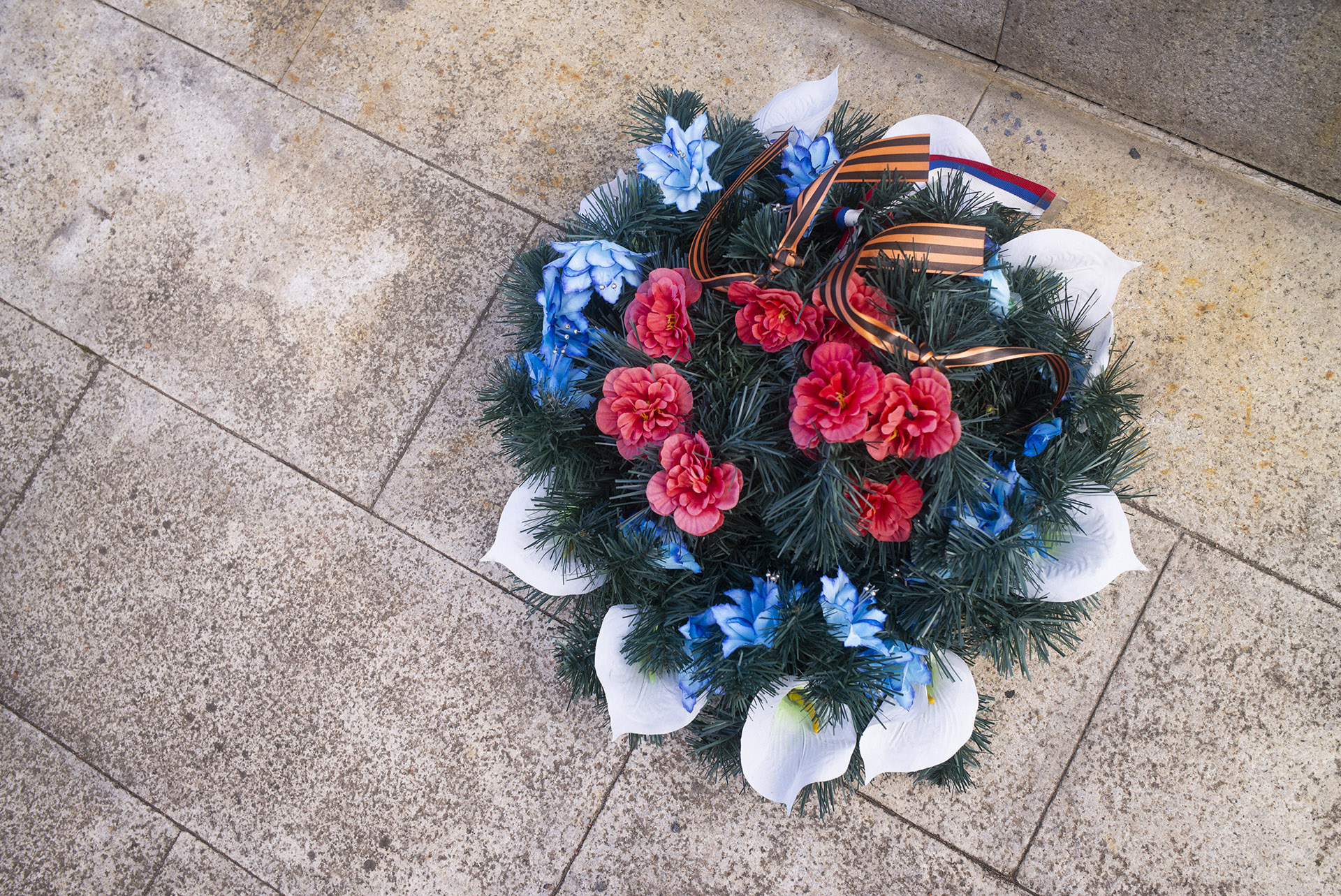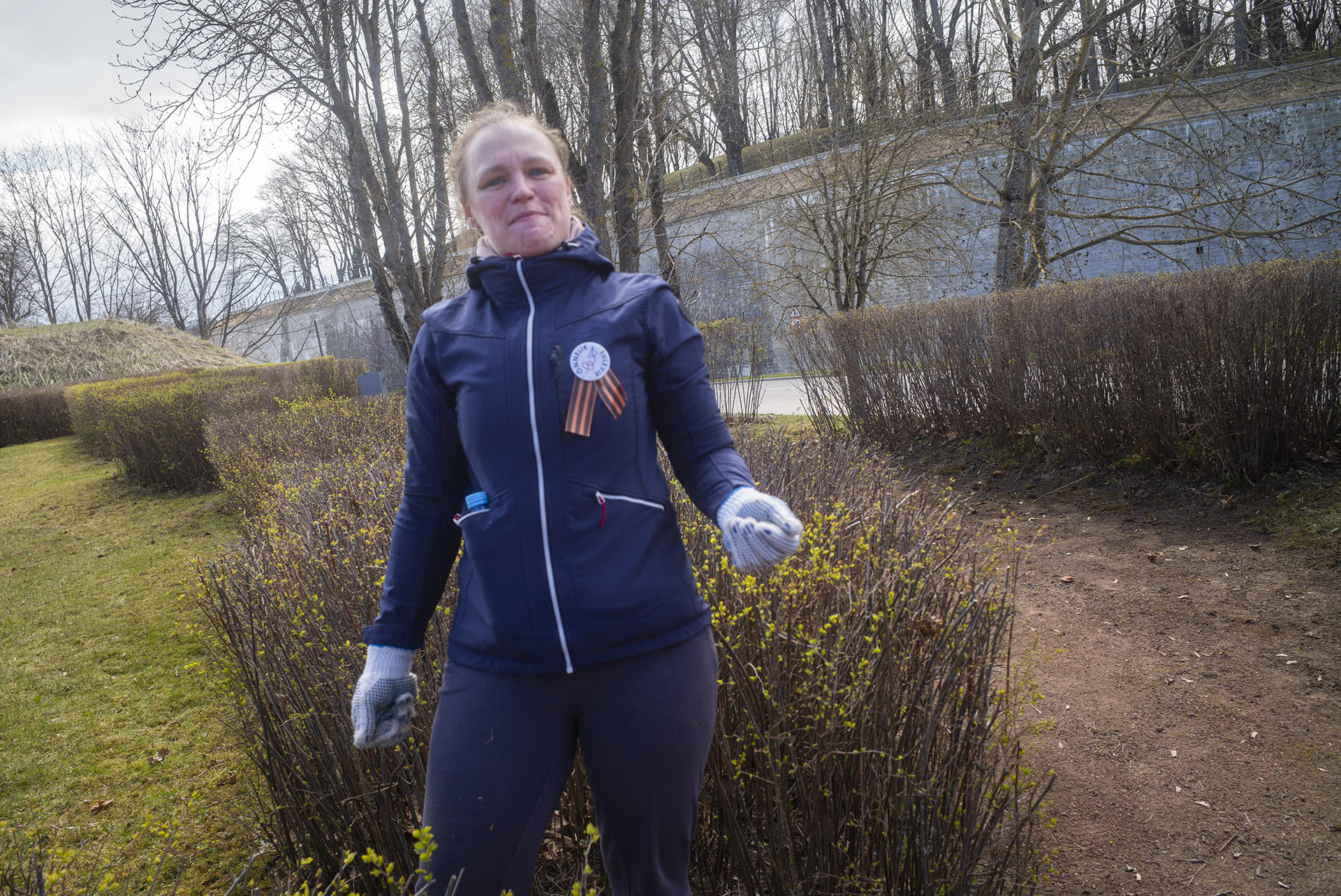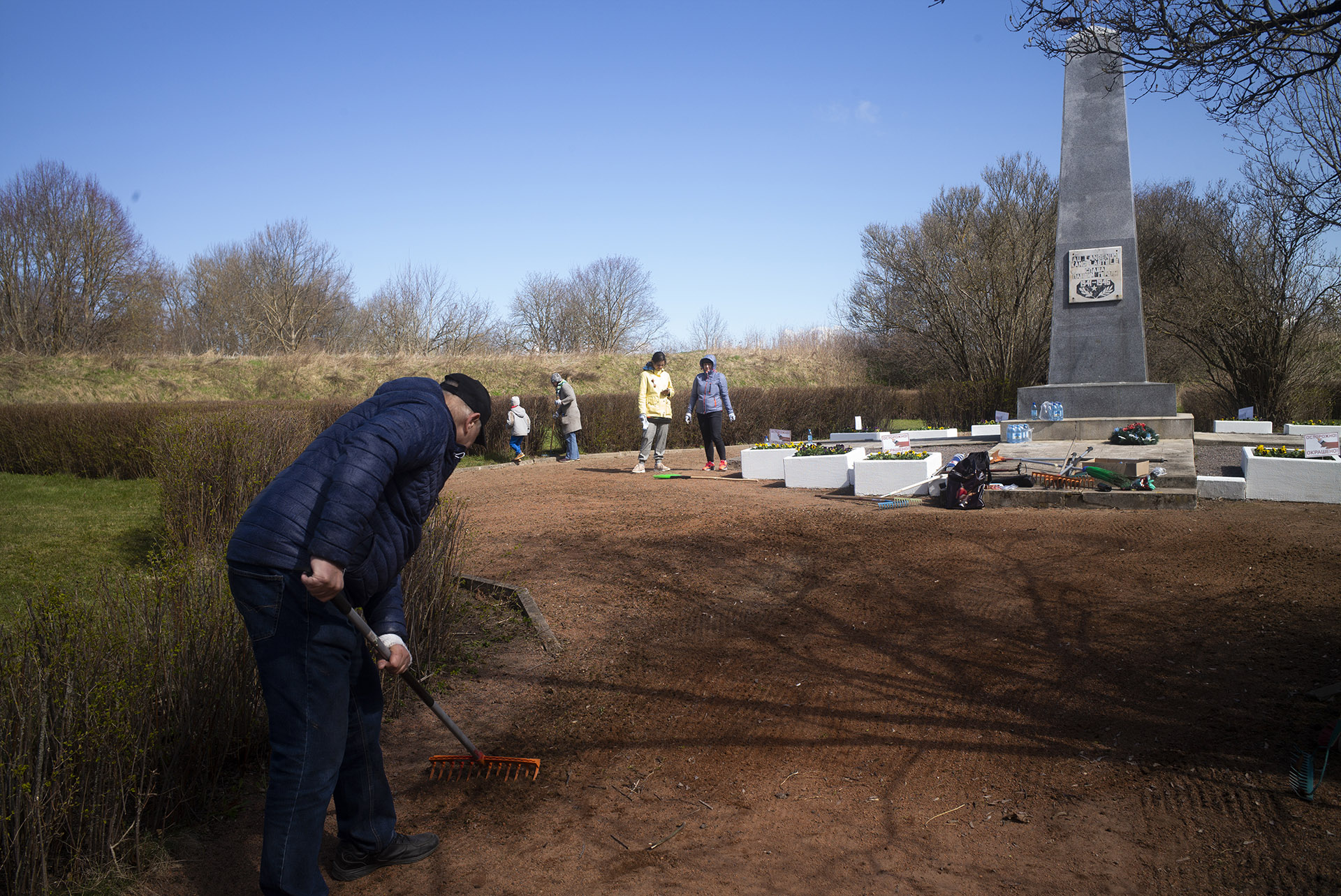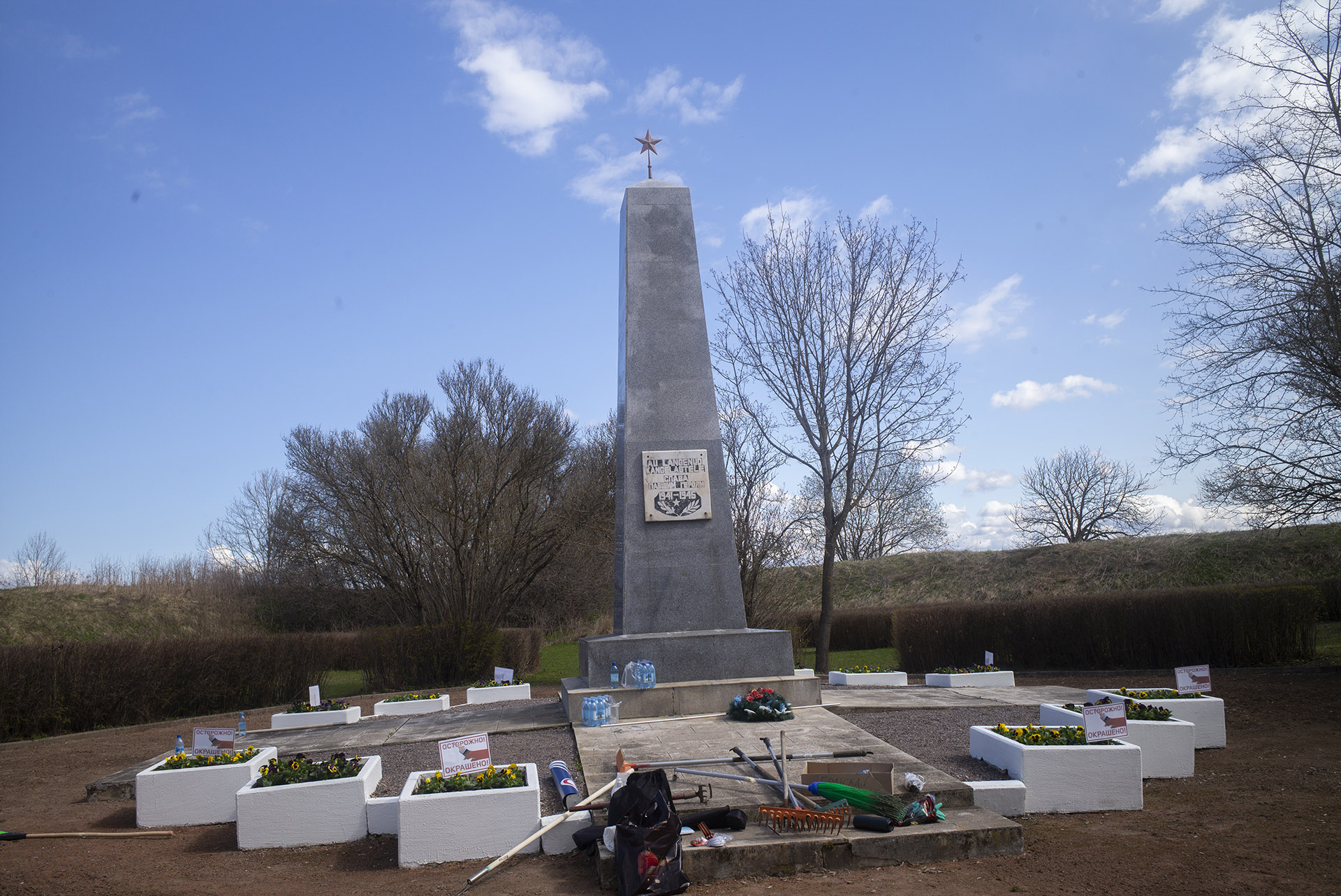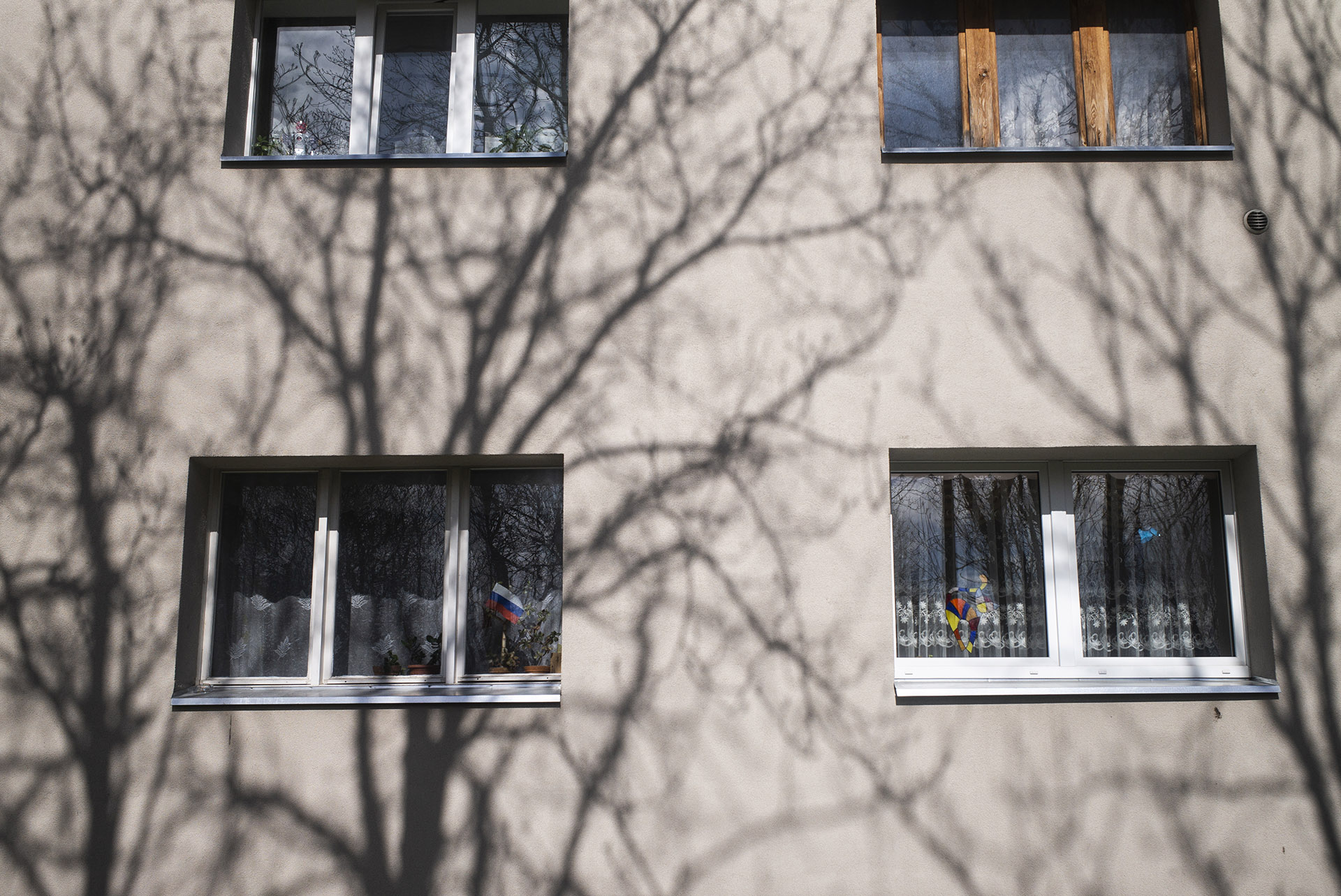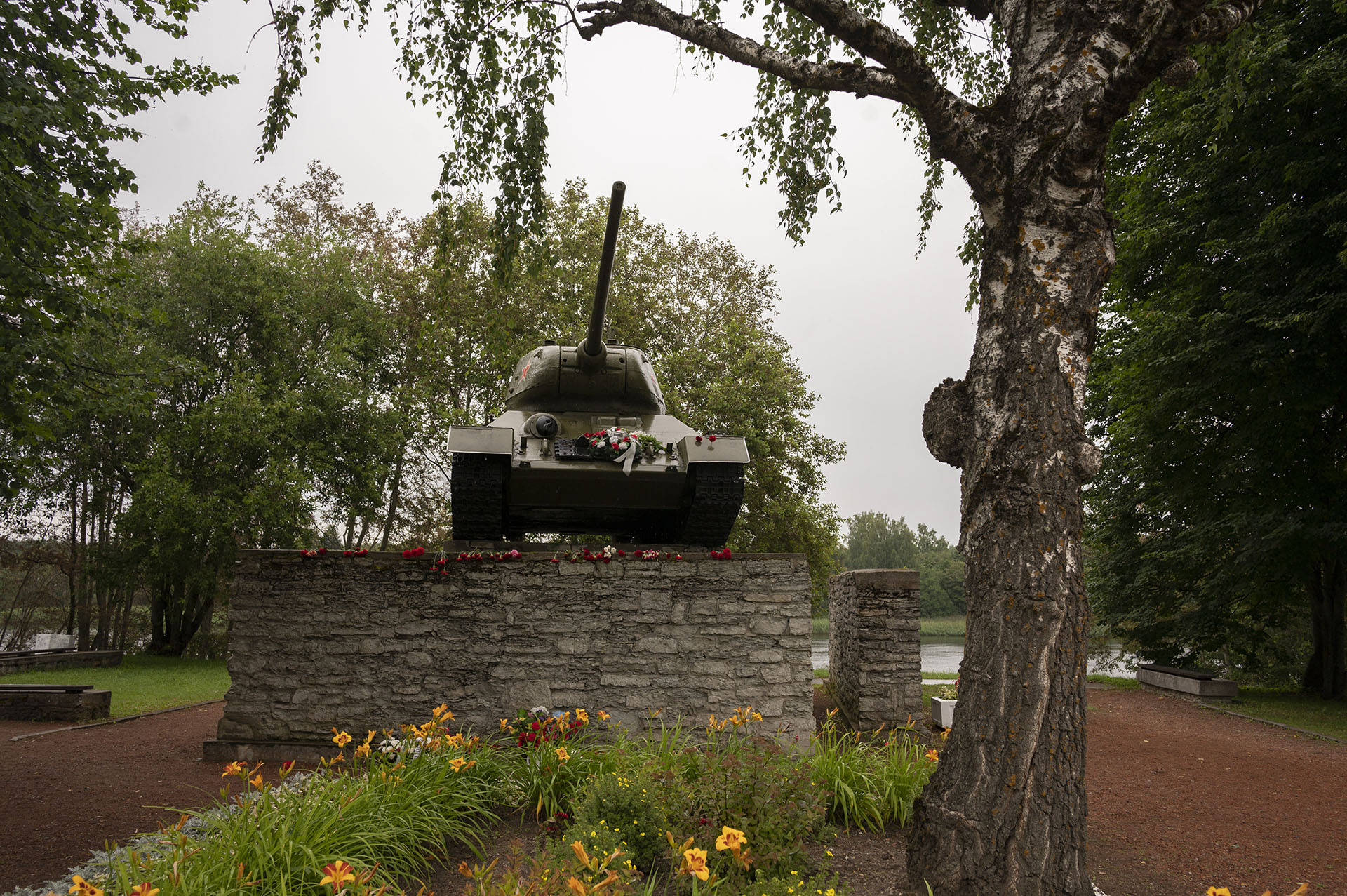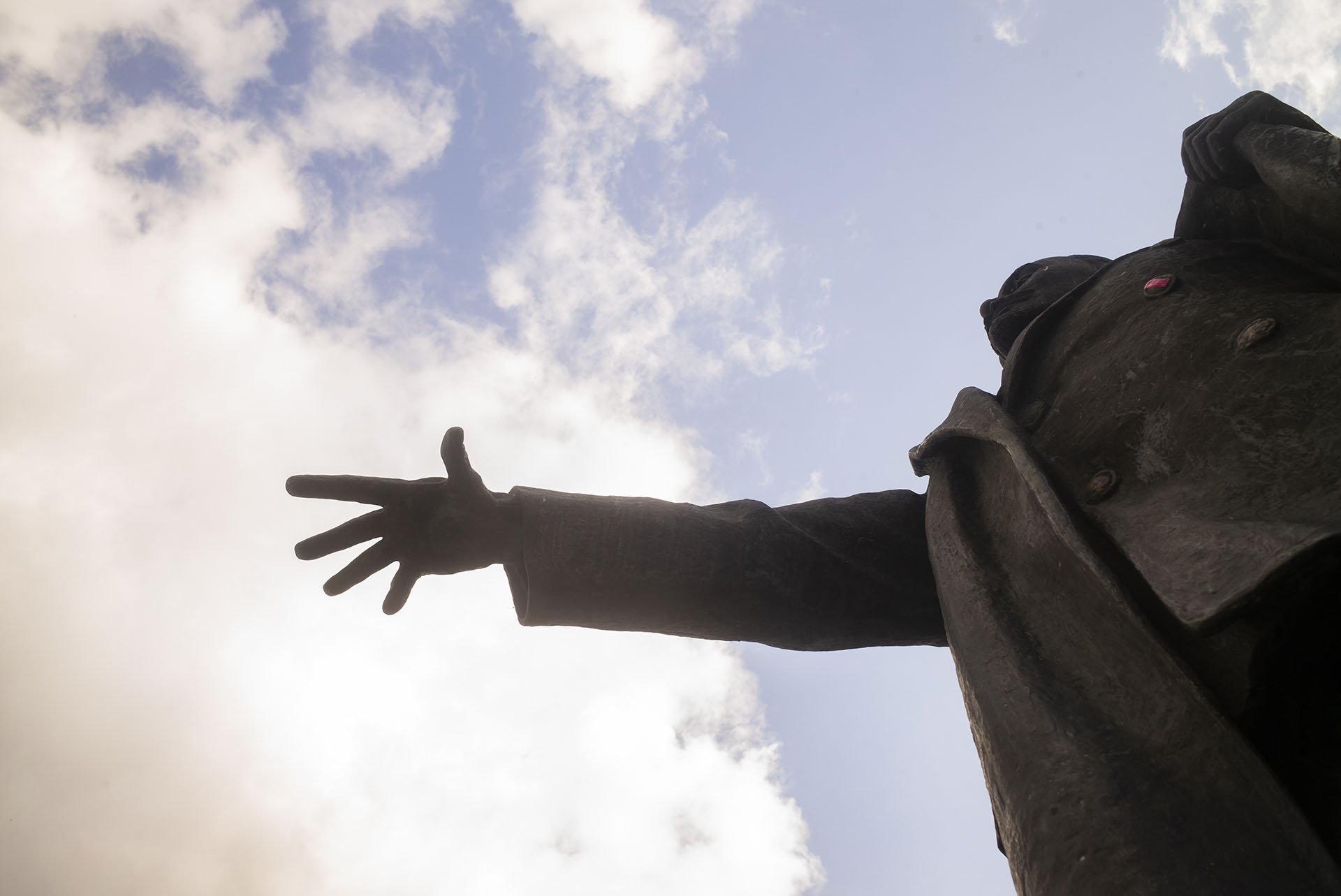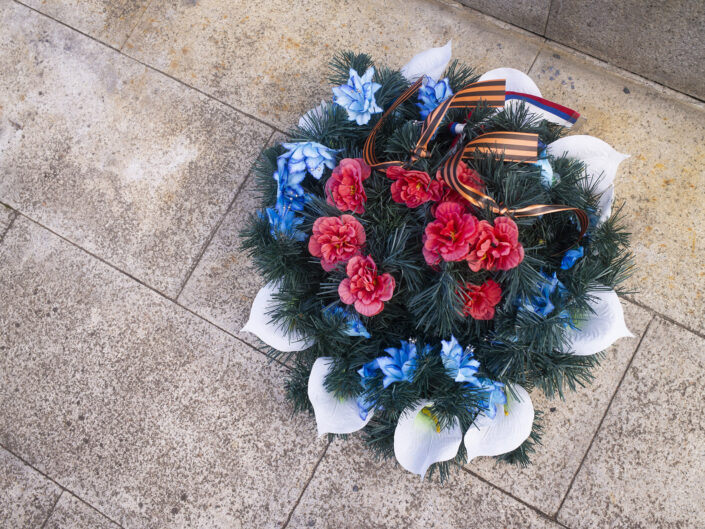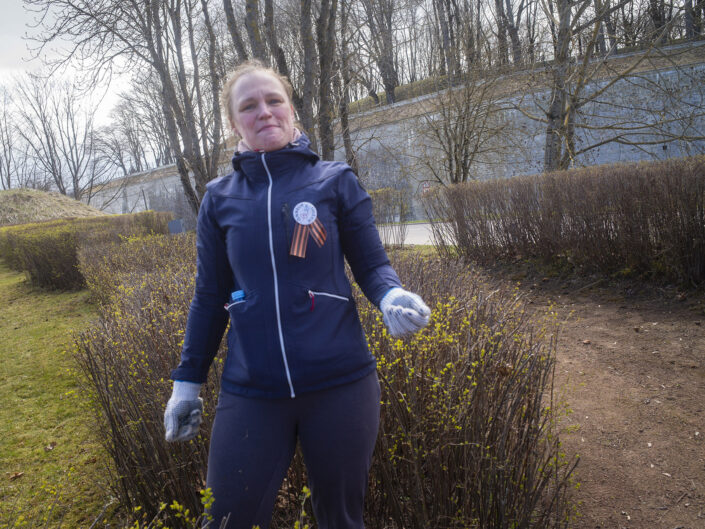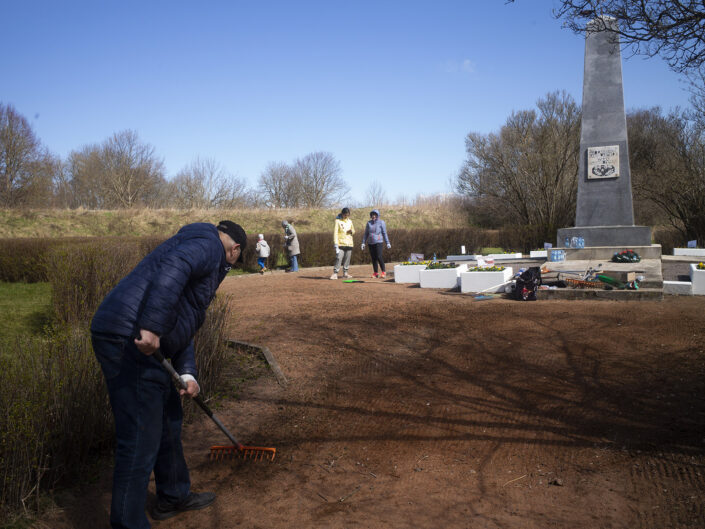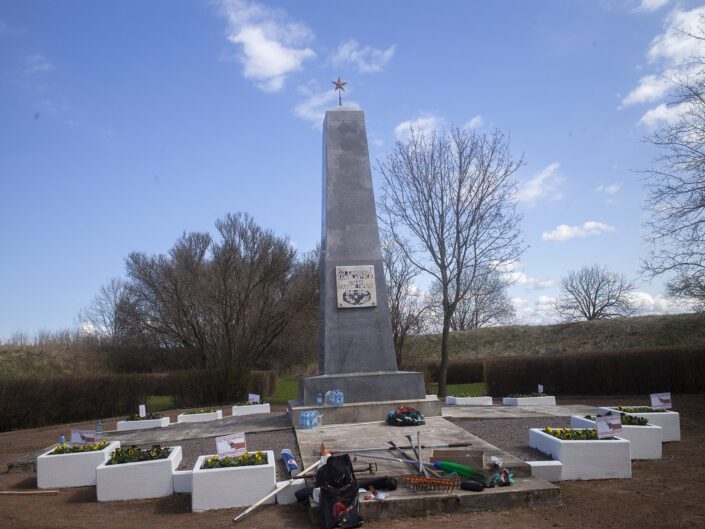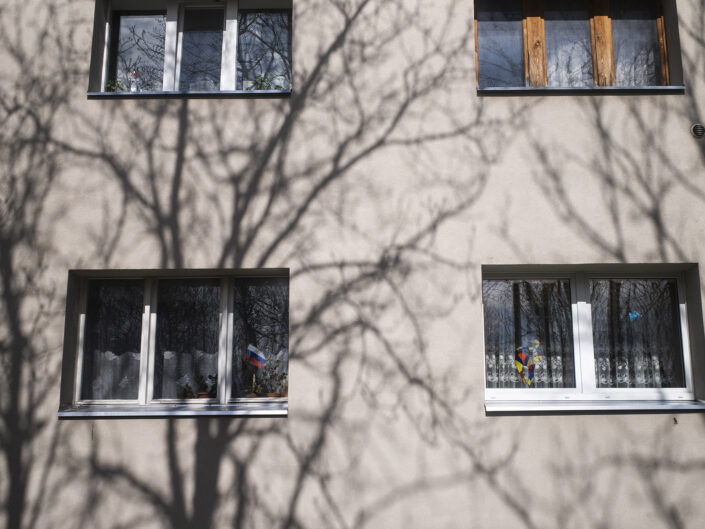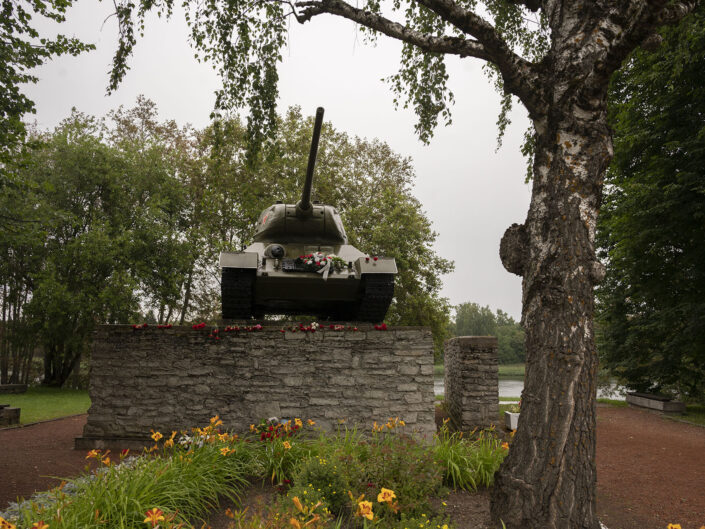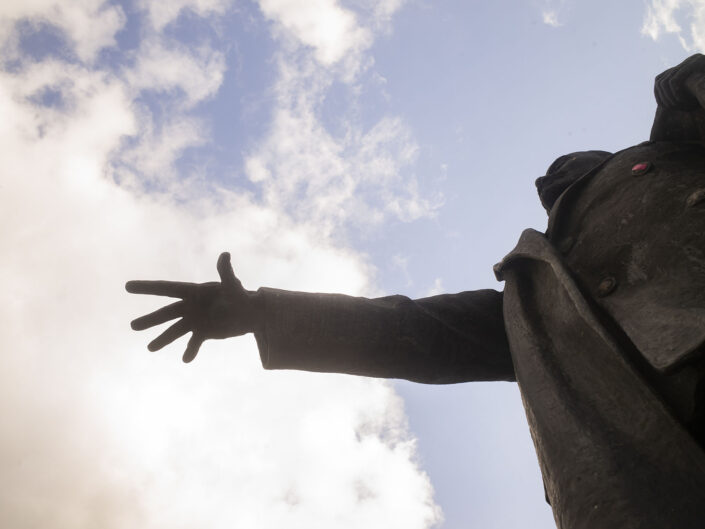Victory Day
The bygone era of Soviet Union is still reminded by the monuments and buildings in Narva. Victory Day celebrations on May 9th remain one of the most controversial events in Narva and yet a significant part of the city’s social life. Commemorating Victory day is an important event for the Russian speaking community in Estonia. Remembering Soviet Army’s victory over Nazi Germany is still part of the political debate in Estonia, especially in light of recent Russia’s invasion of Ukraine. Residents voluntarily take part in cleaning up the landscape around the Soviet Era monument in preparation for the Victory Day. Members of the community from all ages take part in the celebration to keep their cultural heritage alive. However, it is a practice that is still not popular among the Estonians
For the rest of the country it’s a day the war was ended and the first day of new occupation. The collapse of Soviet Union is the turning point for Estonia to create a better life in the (re) independent nation. But for Narva, a former industrial city with economic connections established in other parts of the Soviet Union, the collapse of USSR is a tragedy. After the fall of the USSR, the city’s thriving economy and culture were diminished. Commemoration of the Soviet past is expressed thorough the usage of ribbon and wreath laid (with Russian Federation flag) at the Second World War monument, phenomenon similar to the rhetoric of glorification of the Russian past. The infamous Soviet Era tank T-34 has been moved from its original location outside of Narva to a military museum near Tallinn. The statue of Lenin is not hidden behind a wall in the Narva castle complex.


